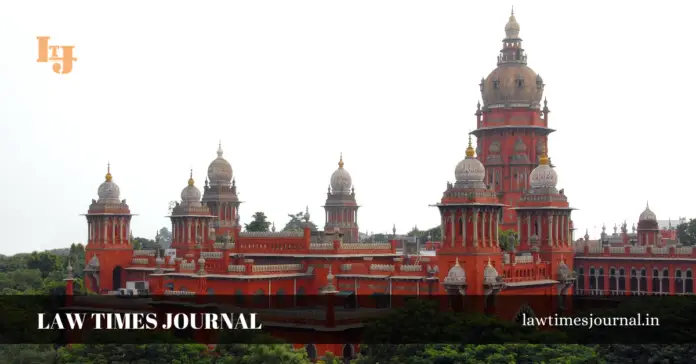
The acquisition of 369 Acres of Private land, by the Tamilnadu Housing Board was quashed by the Single Judge bench of Madras High Court as the Board has not complied with the mandatory provisions of the publication. The appeal preferred by the Board is dismissed by the Division Bench of the Hon’ble Court for the same reasons but the Court impleaded the Ministry of Housing and Urban Affairs to achieve “House for All” mission by imposing restrictions on buying houses.
The Division Bench of the Madras High Court dismissed the appeal filed by the Tamil Nadu Housing Board against the order passed by the single bench quashing the acquisition of 369 acres of private land. While dismissing the appeal the court also proposed to impose restrictions on people from acquiring more than one unit.
Brief Facts:
The single Bench of the Madras High Court quashed the acquisition made by Tamil Nadu Housing Board for about 369 acres of private land for housing project. The High Court quashed the acquisition as the governmental officials failed to notify the acquisition in widely circulated newspapers as mandated under section 4 of the old Act. The officials also failed to comply with the section 6 of the Act.
Aggrieved by the said order Tamil Nadu Housing Board preferred an appeal before the Division Bench of The Madras High Court comprising of Justice N.Kirubakaran and Justice Abdul Quddhose. The bench considering the negligence on the part of the officials dismissed the appeal remarking that the officials should be sensitized about, mandatory provisions of the act and then the officials would take appropriate action, complying with the provisions of the Act. The court suggested that in the case of inadequate staff and lack of infrastructure to fulfill the conditions as mandated in the Act, separate wing can be established to look after the same so that there are no lacunae in the land acquisition proceedings.
While dismissing the appeal, the Division Bench expressed its opinion to impose restriction on persons buying more than one house. Substantiating its opinion the court said that the Right to property is only a constitutional right and hence the government can impose restriction on buying houses till achieving the “house for all” mission.
Key features:
- The court suggested the government to introduce law prohibiting people from buying more than one house. Considering the future of children an additional house may be permitted subject to additional charges.
- The court also suggested to conduct a survey with respect to the number of houses a family possess and enquiry should be conducted when a person possess more than two houses.
- The court opined that a ban must be imposed on NRI from buying houses or plots in India when he is permanently residing in abroad.
- The court remarked that by introducing these restrictions, the price of the houses will reduce thereby facilitating the people who doesn’t have sufficient means to buy homes.
- The court also said that besides the reduction of prices of houses, numerous number of conversion of agricultural lands into commercial and housing projects shall be prevented thereby preserving the environment for future generation.
The court suo motto impleaded Ministry of Housing and Urban affairs as one of the respondents and raised series of queries to be dealt in the next hearing. They are as follows:
- The number of family having basic amenity of housing in India as well as Tamilnadu.
- The ratio of population and housing in India as well as Tamilnadu.
- Time period necessary for achieving ‘Housing for all’.
- Special Schemes that state government and central government have for marginalized sections, economically backward and people belonging to SC and ST.
- Number of families possessing more than one house.
- Is it true to state that when families are allowed to acquire more than one house, it would lead to escalation of price?
- Whether government have all the details of persons regarding possession of more than one house unit.
- If no, why the central government has not taken any steps to conduct a survey with regard to the same.
- Reasons why restrictions should not be imposed on the purchase of houses or plots till the achievement of ‘hosing for all” mission?
- Reasons why 100% extra stamp duty should not be imposed on purchase of additional house?
- Reasons why not to allow conditionally purchasing additional home provided to pay extra statutory dues such as water charges, electricity charges and such other charges?
- Why the government should not prohibit initially the purchases of houses more than one unit at town, municipality and panchayat level?
- Can prohibition be imposed on financial institution for granting loan on purchase of additional houses?
- Why NRI should not be banned from buying plots or housing in India?
- Why prohibition should not be imposedon speculative sale where the property is sold within 3 to 5 years.
The ministry thereby called upon to answer the above queries along with relevant information on the next hearing. The court while expressing its concern that lakhs of people are residing in platforms and unhealthy environment, said that poor people must be enabled to purchase home thereby achieving the policy of House for all policy. The court directed the registry to list the matter on 6th March, 2020.
Edited by J. Madonna Jephi
Approved & Published – Sakshi Raje








